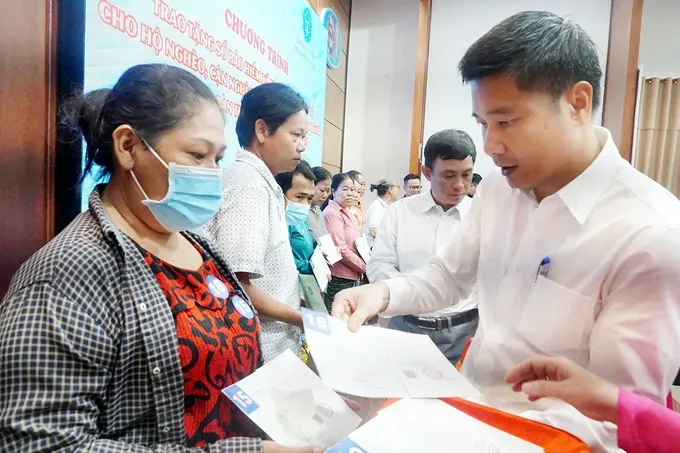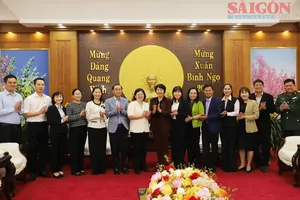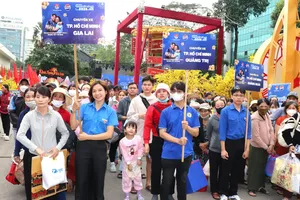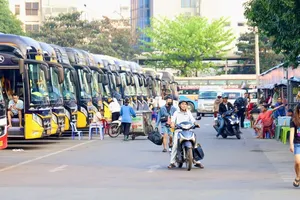
The enlargement of the administrative area brings social insurance and health insurance policies closer to individuals in previously adjacent regions, particularly in remote, isolated, border, and island areas. This facilitates greater participation in and benefits from schemes especially health insurance while enhancing participation and coverage rates for social insurance and health insurance, thus improving social welfare for a larger population.
It also encourages uniformity, reduces regional disparities, enhances service quality comprehensively, aids in stabilizing livelihoods, and creates an environment where individuals can work and produce with confidence, ultimately promoting local socio-economic development.
Nevertheless, this territorial expansion has a considerable impact on the management and operations of Ho Chi Minh City Social Security. In response, the agency is committed to reforming its operations by expediting the adoption of information technology, modernizing processes, and enhancing service quality. These initiatives are designed to ensure the prompt and ongoing implementation of policies, protecting the rights of businesses, workers, and all participants in social insurance and health insurance.
Effective July 1, 2025, the 2024 Law on Social Insurance and the revised 2024 Law on Health Insurance will take effect. During this transformative period, Ho Chi Minh City Social Security has organized personnel to accept applications at public administration service centers at communes and has formed task forces at local social insurance offices to directly receive documents, offer guidance, and resolve issues arising from organizational restructuring and the implementation of the two-tier local government model.
Information technology is being increasingly applied to maintain and improve the effectiveness of Level 4 online public services and support electronic transactions with employers.
Ho Chi Minh City Social Security is also ramping up communication and guidance, especially during the early stage of the new policy rollout and organizational changes, to foster public confidence and support. Close coordination with relevant units particularly medical facilities, the postal service, and local authorities is being strengthened to ensure the smooth implementation of social insurance and health insurance policies.

Efforts are also being made to enhance data connectivity and sharing with ministries and sectors to minimize paperwork and procedures for citizens. Additionally, the agency continues to implement monitoring mechanisms, assess service quality, and gather public feedback to refine processes and improve satisfaction among policy participants and beneficiaries.
As of June 30, HCMC had nearly 4 million people enrolled in compulsory social insurance and approximately 11.5 million enrolled in health insurance, covering 82.1 percent of the population. With a people-centered service approach, Ho Chi Minh City Social Security is advancing its digital transformation initiatives to ensure equitable social welfare for all residents, regardless of location, while contributing to the modernization of the public administration system in the new era.
Notable digital solutions include the use of VssID -Digital Social Insurance-and replacing physical health insurance cards with electronic ones for medical visits nationwide. The agency has also launched 24/7 customer care solutions such as Chatbots, the 1900 9068 hotline, and expanded digital communication via social media, Zalo OA, and proactive messaging. These efforts encourage people and businesses to use online public services, reducing administrative procedures and saving time and travel costs particularly beneficial for residents in remote and island areas.
The integration of the national population database and other governmental digital platforms allows for seamless data connectivity, reducing paperwork, speeding up verification, and improving management accuracy. Currently, the data cleansing and synchronization rate for participants’ personal identification and citizen ID numbers in Vietnam Social Security database has reached 99.43 percent.
Deputy Director of Ho Chi Minh City Social Security Tran Dung Ha emphasized the need for public cooperation to effectively implement the new Social and Health Insurance Laws. He urged residents to take an active role by proactively seeking out official information and verifying their own insurance details.
Specifically, the public should utilize official channels from Vietnam Social Security, such as the Electronic Information Portal, the VssID app, and the official Facebook and Zalo pages. It's crucial for individuals to regularly check their social and health insurance participation, including payment periods, benefit levels, and plan types, which can be done through the VssID app or the Vietnam Social Security's Public Service Portal.
Additionally, employees should monitor their employer's social insurance payments to ensure they are being made in full and on time. Self-employed individuals, business owners, and freelancers are encouraged to participate in voluntary social and family health insurance to protect themselves against potential risks.
























